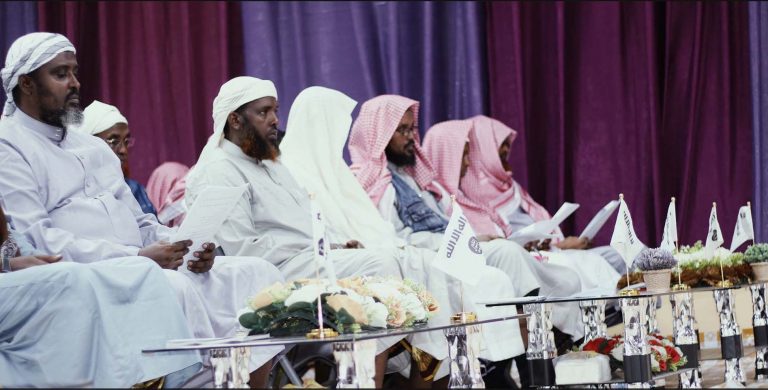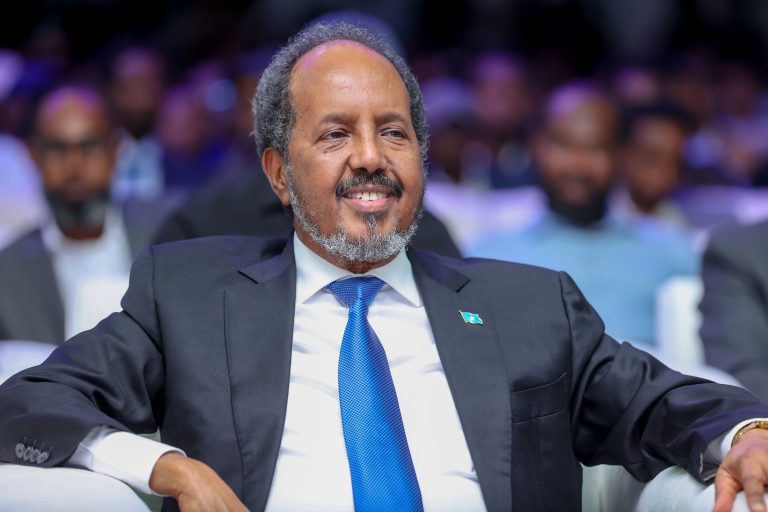MOGADISHU, Somalia – Somalia has pledged continued cooperation with the United States after President Donald Trump reinstated a sweeping travel ban blocking Somali nationals from entering the U.S., citing concerns over national security and weak governance.
The new executive order, signed Thursday, revives a controversial policy first introduced during Trump’s initial term. The order bans full entry into 12 countries—including Somalia—and imposes partial restrictions on citizens from seven additional nations.
In a measured response, Somali Ambassador to the United States Dahir Hassan Abdi said Mogadishu remains a committed partner in counterterrorism and regional stability efforts and is prepared to engage diplomatically to resolve concerns raised by the White House.
“Somalia remains a key partner in the global fight against terrorism,” Abdi told The Washington Post. “We are taking tangible steps to strengthen government institutions and enhance national security.”
U.S. cites security, governance shortcomings
The executive order singles out Somalia for what it describes as systemic weaknesses in governance and internal security. It accuses the Somali federal government of lacking the institutional capacity to control its borders, issue secure identification documents, or conduct adequate background checks on travelers.
“Somalia lacks a central authority capable of issuing reliable passports and verifying identities,” the order states. “Its inability to maintain effective territorial control presents a serious risk to U.S. national security.”
The White House also criticized Mogadishu’s refusal to accept Somali nationals deported from the United States, calling it a violation of international norms and a key justification for the renewed travel ban.
According to U.S. immigration data, deportations to Somalia have been frequently delayed due to either the absence of repatriation agreements or concerns about human rights violations upon return. The Trump administration argues that non-compliance undermines immigration enforcement and national security protocols.
The African Union (AU), whose membership includes several countries subject to the ban, has expressed concern over the policy’s implications for diplomatic, economic, and humanitarian ties. In a Friday statement, the AU Commission urged Washington to adopt a “balanced, evidence-based” approach that reflects shared interests and historical partnerships.
“We respectfully call on the United States to manage its borders in a way that protects security without compromising the principles of fairness, cooperation, and mutual respect that underpin U.S.-Africa relations,” the AU said.
The ban applies fully to citizens of Somalia, Libya, Sudan, Eritrea, Chad, the Democratic Republic of Congo, Equatorial Guinea, Iran, Myanmar, Yemen, Afghanistan, and Haiti. Partial restrictions—barring permanent immigration and some visas—affect travelers from Burundi, Sierra Leone, Cuba, Togo, Laos, Turkmenistan, and Venezuela.
Somalia: A fragile state with a strategic role
Since the collapse of its central government in 1991, Somalia has experienced decades of political fragmentation and violence. Though significant challenges remain — particularly from the al-Qaeda-affiliated al-Shabaab group — Somalia has made progress with support from international partners, including the United States, the African Union, and the United Nations.
U.S. military and intelligence personnel have maintained a limited presence in Somalia, offering training and logistical support to Somali forces and regional allies. In addition, the U.S. Agency for International Development (USAID) has funded stabilization, governance, and humanitarian projects across the country.
Somali officials worry that the new restrictions could weaken cooperation in these areas at a time when international support is crucial for rebuilding national institutions.
“This decision does not reflect the efforts Somalia has made to improve governance and security,” said a senior Somali official in Mogadishu, speaking anonymously. “We believe in engagement and will continue discussions with our U.S. counterparts to ensure that progress is not undermined.”
Travel ban could disrupt diaspora ties
The move has sparked concern within the Somali diaspora in the United States, particularly in Minnesota, Ohio, and Washington, D.C., where tens of thousands of Somali Americans reside. Community leaders say the policy may prevent family reunifications, interrupt educational and professional opportunities, and dampen cultural and economic exchange.
According to the Migration Policy Institute, the U.S. Somali diaspora sends hundreds of millions of dollars in remittances to Somalia annually — funds that play a vital role in supporting families and stimulating the fragile economy.
“Policies like this one isolate communities and cut off a critical lifeline to our country,” said Ahmed Osman, a Somali-American civic organizer in Minneapolis. “We urge the U.S. government to consider the human impact.”
Despite the sweeping nature of the restrictions, Somalia’s government has avoided harsh rhetoric and instead emphasized its desire to maintain positive bilateral relations. Officials in Mogadishu say they intend to pursue diplomatic channels to address the policy and ensure continued collaboration on key issues.
Ambassador Abdi noted that Somali authorities have already taken steps to improve border controls and enhance civil registration systems, which he believes demonstrate a serious commitment to reform.
“We are ready to work constructively with our American partners to resolve any concerns,” he said. “This partnership is too important to be derailed.”
As the new policy takes effect, observers say the coming weeks will be crucial in determining whether dialogue between Washington and Mogadishu can prevent further fallout and sustain cooperation on counterterrorism, migration, and regional development.







































